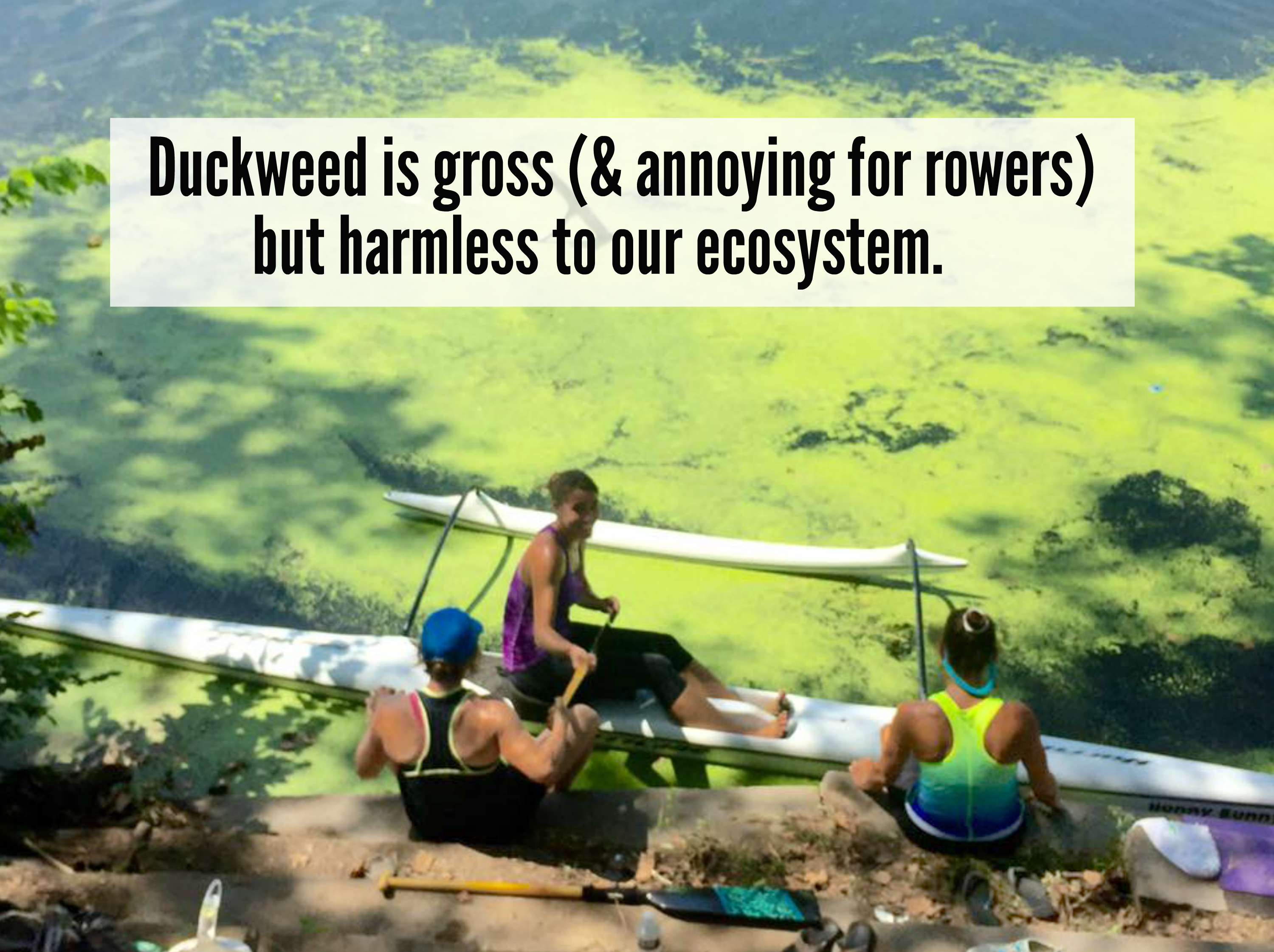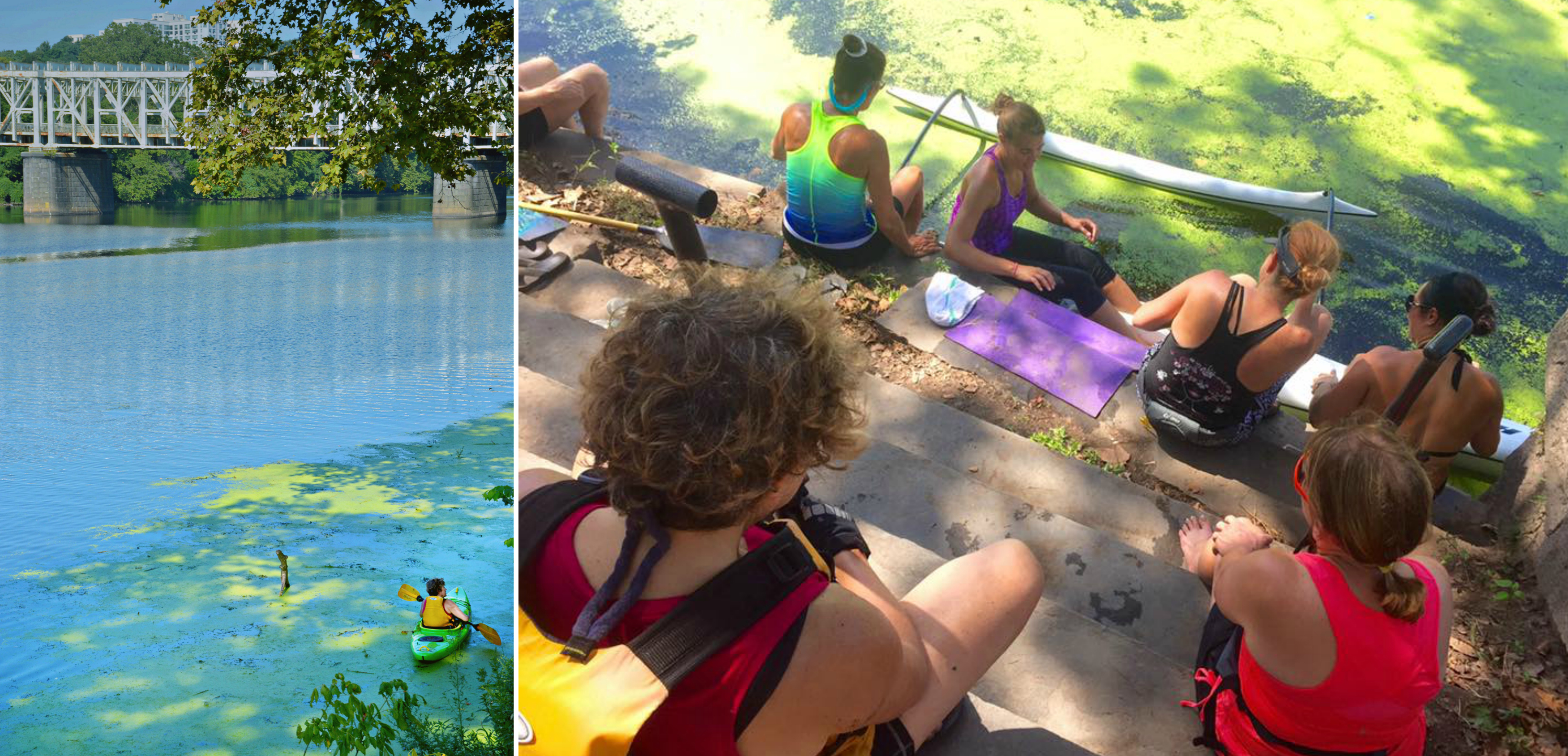
Surely you’ve noticed the excess of green slime floating on the Schuylkill lately. Algae? Pollution? Toxic sludge? Nope, just duckweed — rowers hate it but this benign aquatic flowering plant is a genetic wonder that could save the planet.
Despite how it looks, this Summer’s bloom of duckweed is completely harmless, says Philadelphia’s Water Department. In a recent interview with Philadelphia Magazine, public info officer Laura Copeland explained that duckweed occurs naturally in low-flow conditions — it is not a sign the river is unhealthy.
In fact, NBC10 reported duckweed can actually help protect water quality by competing with algae, which can deplete oxygen and lead to fish kills. This year, duckweed has been especially rampant with the Schuylkill so low, creating the near-stagnant conditions this aquatic plant thrives in. Doesn’t help that heavy rains a few weeks back flushed down a big biomass from upstream.
So what is duckweed, anyway?
Duckweeds are the world’s smallest flowering plants — they are very simple, lacking obvious stems or leaves. The plant consists of “frond” structures only a few cells thick, between which tiny air pockets allow it to float on or just under the water’s surface.
**FIVE AMAZING DUCKWEED FACTS**
- Duckweed is one of the fastest growing plants in the world, producing more protein than soybeans and more starch than corn.
- Duckweed cover helps reduce water evaporation.
- Duckweed acts as a sponge soaking up extra nutrients/impurities & filtering the water around it.
- Yes, ducks eat duckweed! So do many other birds and fish, plus it provides shelter for frogs, turtles, aquatic mammals, and mosquito-eating insects.
- Duckweed never “grows up” but remains in rapid vegetative growth its whole life cycle. Researchers mapped the duckweed genome in 2014, and now seek clues to cloning & aging in its code.
Duckweed’s so cool, it’s known as a “super weed” and is heavily researched for all kinds of interesting uses, including biofuel — apparently, it’s not only hella-fast at reproducing but it can grow almost anywhere, even in waste-water, and water in places you’d never imagine crops could grow.
Since duckweed is such a fantastic producer of starch, bio-engineers are thinking that with just a little tweaking, it could perhaps quite efficiently produce oil instead. Without destroying any land, while purifying water sources. And creating food. This little plant could change the world!
An interesting thought for the future, at least. Right now, maybe just knowing a bit more about duckweed will help our rowers feel a little less frustrated at the stuff gunking up their oars & rudders. As the temperatures cool off and late Summer rains begin, the biomass will likely break up & disperse down the Delaware and out to the bay.
Big thanks to the Schuylkill Dragons, who shared their duckweed issues as well as their awesome pictures from the steps of Kelly & Midvale. Best wishes for smoother rowing soon…
PS. Duckweed is NOT milfoil — which is a long, feathery aquatic plant that is also annoying rowers these days. Growing from the bottom instead of just floating in slicks on top like duckweed, milfoil is a more substantial plant with leaves, stems & roots. It is an invasive, non-native species in Pennsylvania.
(This article is about the green goo: the duckweed.)






Be the first to comment